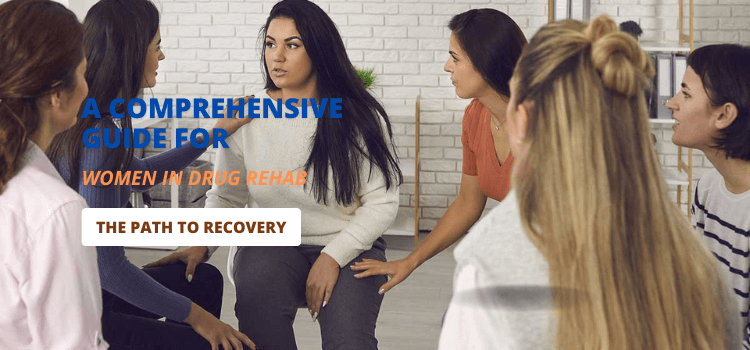
Drug abuse is a serious issue that affects millions of women worldwide. The consequences of drug addiction can be devastating, causing physical and mental health issues, social isolation, financial stress, and legal trouble. Women struggling with drug addiction have unique needs and challenges that require specialized and individualized treatment.
In today’s society, there is a growing awareness of the importance of seeking help for drug addiction and the benefits of ongoing support and treatment. Drug rehab centers offer the necessary tools, resources, and support for women in their journey toward recovery. However, the path to recovery through drug rehab for women can be challenging, and it requires dedication, persistence, and a comprehensive approach.
Assessment of Substance Use Disorder
This entails a thorough assessment of the person’s drug addiction behaviors, medical history, mental health situation, and other pertinent considerations. In order to choose the best treatment strategy and create a personalized treatment plan, an accurate assessment is crucial. Physical examinations, blood testing, and standardized screening questionnaires are just a few of the diagnostic instruments and assessments used in the process.
The aim is to identify the level of substance abuse or addiction, any co-occurring mental health disorders, and other factors that may impact treatment outcomes. A thorough assessment ensures that women receive the most effective and appropriate treatment for their specific needs, leading to a successful path to recovery.
Developing an Individualized Recovery Plan
At the core of this step is the recognition that each person’s addiction is unique, and there is no one-size-fits-all solution to recovery. Women in drug rehab need to work with their counselors and medical professionals to create an individualized recovery plan that accounts for their specific addiction history, lifestyle, and social support.
The plan should include personalized goals, strategies, and an action plan for addressing triggers and potential issues that could potentially hinder recovery. Such a plan will be critical in helping women navigate the challenges of the recovery process and stay on track in their sobriety journey.
Treatment and Support Strategies
The journey toward lasting recovery from drug addiction can be a long and difficult process. However, with the right treatment and support strategies, it is possible to achieve a fulfilling and sober life. In this comprehensive guide for women in drug rehab, we’ll explore three key treatment and support strategies that can help you on your path to recovery.
1. Behavioral Therapy
Individuals can recognize and alter harmful thought patterns and actions that support drug addiction with the use of this kind of therapy. Examples of behavioral therapy include Cognitive Behavioral Therapy (CBT), Dialectical Behavior Therapy (DBT), and Motivational Interviewing (MI). These therapies provide patients with the tools they need to manage triggers, cope with stress, and develop healthier habits as they rebuild their lives.
2. Medication-Assisted Treatment
For some individuals, medication-assisted treatment (MAT) may be a necessary component of their drug rehab program. MAT involves the use of medication, under the guidance of a medical professional, to help manage withdrawal symptoms and decrease drug cravings. This approach has been shown to be effective in treating opioid addiction and can be used in conjunction with behavioral therapy.
3. Aftercare Support
When treatment in a rehab facility is completed, it is important for individuals in recovery to have continued support from family and friends, as well as professional aftercare services such as counseling and 12-step meetings. Aftercare programs can provide an important source of guidance, accountability, and emotional support for women in recovery, helping them to stay on the path toward lasting sobriety.
In Conclusion
Women need specialized care and support in drug rehabilitation because addiction and recovery affect them differently than men. Rehab programs that provide comprehensive, gender-specific care offer greater chances of success for women struggling with addiction. By understanding the factors that contribute to addiction in females and providing the necessary support throughout treatment, women in rehab can embark on a path to recovery that sets the stage for a healthy future. It’s essential to seek help and take the first step towards recovery to regain control over one’s life and move towards a happier tomorrow.






Leave a Reply